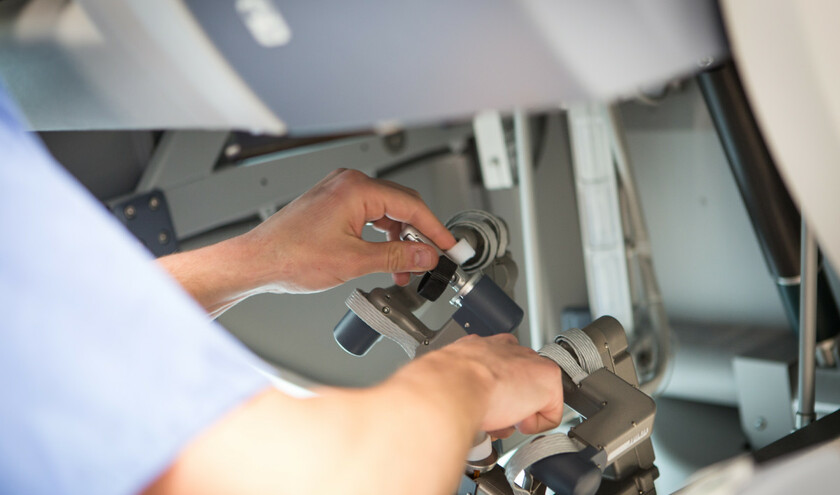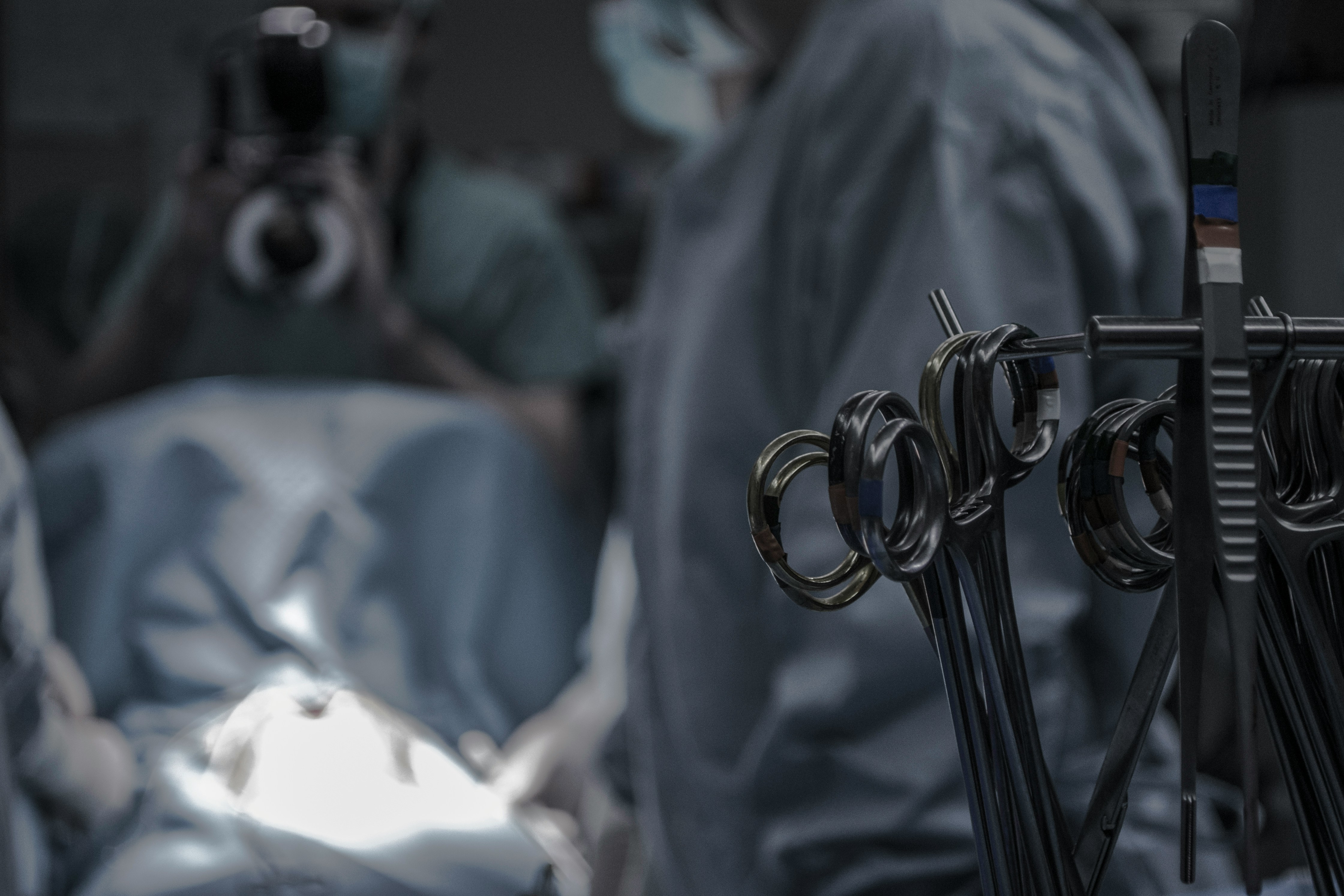NHS England is forecasting that half a million operations will be supported by its robot drive every year by 2035, up from 70,000 in 2023/24.
Nine in ten of all keyhole surgeries, such as the removal of certain organs affected by cancer, will be delivered with robot assistance within the next 10 years - up from one in five today with robotic surgery being the default for many operations.
In addition, the NHS expects to see increasing numbers of emergency operations using the technology, which can be more precise than the human hand.
The new NHS England forecast follows the publication of its first national guidance on how robotic programmes should be delivered.
Sir Jim Mackey, NHS chief executive, said: ‘The NHS has pledged to return to shorter elective waiting times by 2029 and we are using every tool at our disposal to ensure patients get the best possible treatment.
‘Expanding the use of new and exciting tech such as robotic surgery will play a huge part in this. Not only does it speed up the number of procedures the NHS can do, but it also means better outcomes, a faster recovery and shorter hospital stays for patients.'
In particular, robotics will be increasingly used as part of keyhole surgery, where a surgeon uses only small cuts and a camera to minimise damage to tissues.
Compared to traditional keyhole surgery, robotic surgery allows greater dexterity and is easier to manipulate as the instruments are controlled by a surgeon at a console using a 3D camera. In orthopaedic robot procedures, the robot is programmed to perform elements of the procedure
Patients undergoing surgery involving robots can recover quicker and be discharged sooner, with some bladder cancer patients leaving hospital in just five days - half the expected time with traditional open surgery.
In recent years, the range of operations involving robots has widened – in 2011/12 urological cancer surgery made up 80%, but by 2023/24 this relative proportion dropped to 44% even though the number of operations had increased, as there was significant growth in areas such as colorectal, gynaecology, ENT and orthopaedic procedures.
Five systems for soft tissue procedures – such as hernia repair, removal of tumours, and gallbladder removal, and six for orthopaedic surgery – such as full and partial knee replacement procedures and hip replacements – have received conditional approval from NICE while they undergo further evaluation, meaning the use of this technology can be expanded further across the NHS to help thousands more patients.
John McGrath, consultant surgeon at North Bristol NHS Trust and chair of the NHSE Steering Committee for Robotic Assisted Surgery, said: ‘Faster recovery and shorter hospital stays are not only hugely important benefits for patients undergoing surgery, if used efficiently, they can have a positive impact on the rest of the system by relieving pressure on services and therefore helping to reduce waiting times.
‘Robot-assisted surgery can also make complex operations less physically demanding for surgeons, with the potential to reduce strain on surgical teams, allowing a greater number of complex surgeries to be carried out each day.
‘The approval of 11 systems by NICE was a milestone in the continuing development of this technology and our newly-published national strategy will help ensure patients across the country are able to access this treatment when they need it, regardless of location.'
Health and social care secretary, Wes Streeting, added: ‘Whether it's robotic surgery, our new health data research service to accelerate the development of new medicines, or announcing new artificial intelligence that detects skin cancer, our Plan for Change is driving forward new ways to help cut waiting lists and get patients treated on time again.
‘We have put a record £26bn into our NHS and social care, which includes cash to bring more cutting-edge tech into the health service to boost productivity, speed up recovery rates, and get people back to their best as soon as possible.'
In response, Matthew Taylor, chief executive of the NHS Confederation, said: ‘The expansion of robotic surgery is a very welcome step that will benefit both patients and the NHS. Robotic surgery programmes show significant efficiency gains by allowing surgeons and consultants to carry out more procedures while also leading to improved patient outcomes.
‘These efficiency gains can build upon the work health leaders have already undertaken to improve productivity, including setting up separate sites for surgery so that routine operations are not cancelled due to spikes in demand for emergency care.
‘Increased productivity also has a positive impact on staff morale and retention – it can help address workforce development needs and having robotic surgery capabilities can attract consultants to positions at hospitals, helping to fill staffing gaps.
‘But to achieve these productivity boosts requires the upfront investment in robotic surgery technologies – which can often be very expensive. This is why it is so important for the government to continue to increase capital investment into the health service to make up for decades of underinvestment. We are also urging the government to lift the ban on private investment into the NHS to enable the building of new healthcare facilities while also supporting economic growth and local regeneration.'



